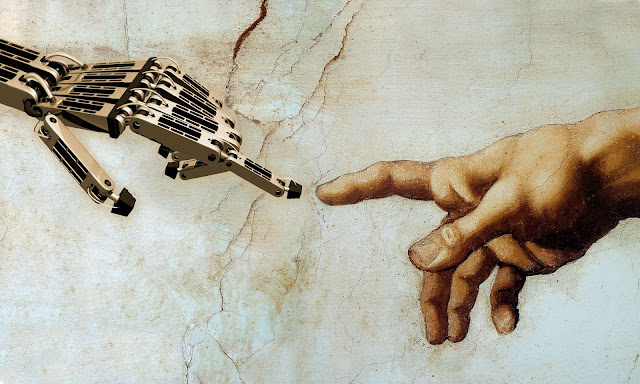By Clint Archer - Posted at The Cripplegate:
The animal rights group, PETA, has traditionally found the line between person and pet to be blurrier than it is to most of us, but they do a bit better on the distinction between animal and machine. When news of a Google engineer kicking a 4-legged robot went viral, the Twittersphere lit up with ethical questions about robot cruelty. PETA was trolled approached for comment by a CNN reporter. Their response was unsatisfyingly sane: “PETA deals with actual animal abuse every day, so we won’t lose sleep over this incident.”One who has lost sleep over the fears of self-aware AI turning against humanity, is Elon Musk, an early investor in OpenAI. When he was asked what he thought about kicking robots, he responded wryly, “It’s probably not wise. Their memory is very good.”
What makes the artificial intelligence industry so intriguing (and alarming) is how similar to humans these computer programs can seem. A staple sci-fi trope is a chilling denouement that the human protagonist is actually a cyborg—a robot with an organic flesh exterior. But as science fiction morphs into fact before our very eyes, like a shapeshifting T1000, questions about what constitutes personhood become more important than ever.
As Christians, we don’t need a Turing test to tell man from machine. This question comes with a baked-in answer that renders the issue practically moot: humans are different from machines, animals, and even angels, in that we are uniquely created in God’s image.
See also:
